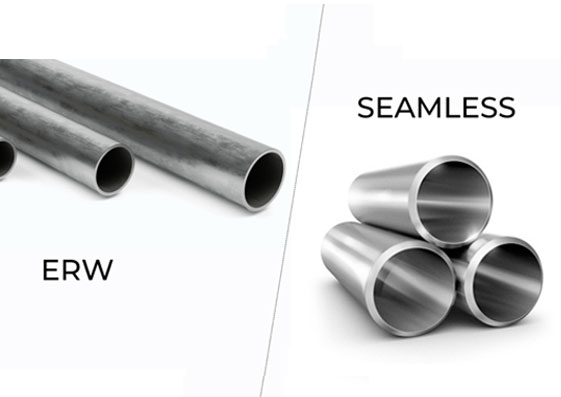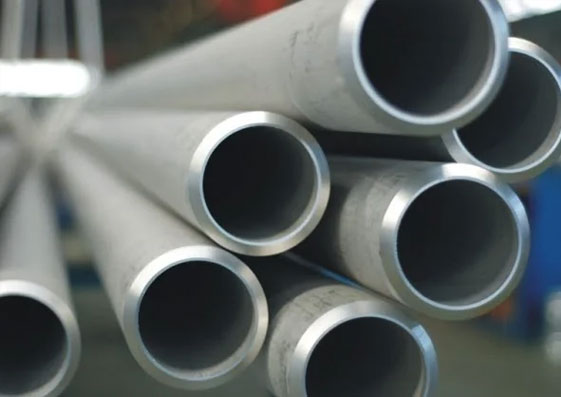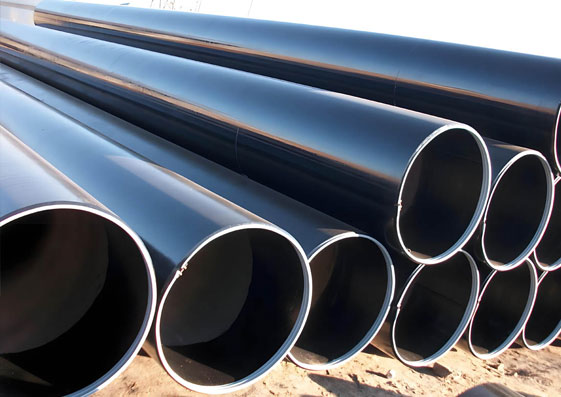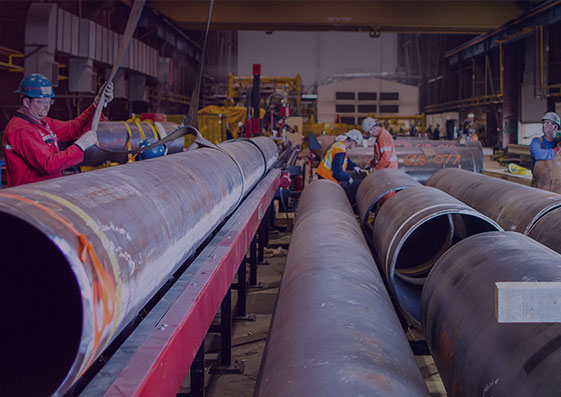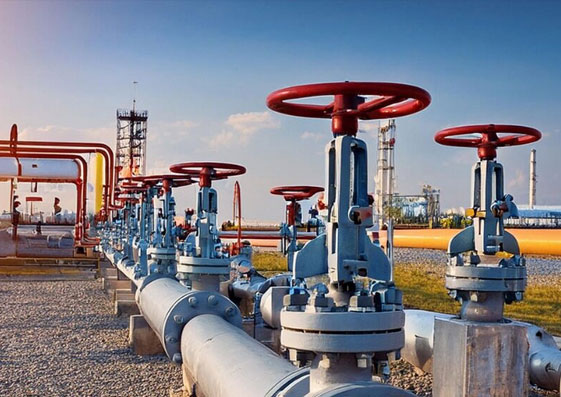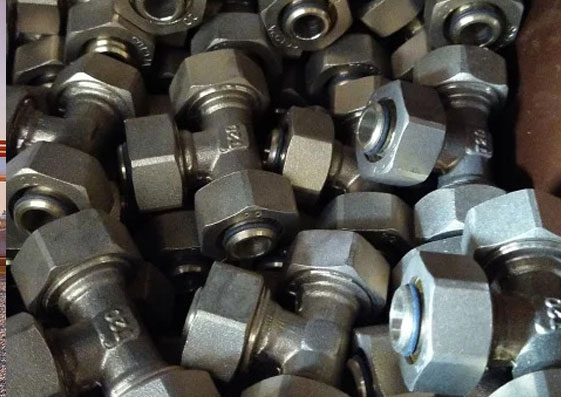Pipes are essential components in industries such as construction, oil & gas, power generation, and manufacturing. Two major types of pipes dominate the industrial landscape: Seamless Pipes and ERW (Electric Resistance Welded) Pipes. Both have unique characteristics, strengths, and applications. This guide explores their key differences, manufacturing processes, and applications to help you make an informed decision.
What are Seamless Pipes?
Seamless pipes are manufactured without any welds or joints. They are created using a solid billet, which is heated and pierced to form a hollow tube. This process ensures uniformity and eliminates the possibility of weak points, making them highly reliable for critical applications.
Characteristics of Seamless Pipes:
- Strength and Durability: Seamless pipes can withstand high pressure and extreme temperatures, making them ideal for demanding environments.
- Smooth Surface: Their smooth interior surface ensures efficient fluid flow, reducing friction and pressure losses.
- Corrosion Resistance: Seamless pipes are often made from materials like stainless steel or alloy steel, which offer excellent resistance to corrosion.
- Size Range: Seamless pipes are generally available in smaller diameters (up to 24 inches).
Manufacturing Process:
- Billet Heating: A solid cylindrical billet is heated in a furnace.
- Piercing: The billet is pierced to create a hollow shell.
- Elongation and Sizing: The hollow shell is elongated and sized to the desired dimensions.
- Heat Treatment: The pipe undergoes heat treatment for enhanced mechanical properties.
- Finishing and Inspection: The final product is inspected for dimensional accuracy and surface quality.
What are ERW Pipes?
ERW pipes are manufactured by rolling a steel coil into a cylindrical shape and welding the seam using electric resistance. The welding process ensures a strong bond along the pipe’s length, making ERW pipes suitable for less demanding applications compared to seamless pipes.
Characteristics of ERW Pipes:
- Cost-Effectiveness: ERW pipes are more economical due to their simpler manufacturing process.
- Uniform Thickness: The rolling and welding process ensures consistent wall thickness.
- High Precision: ERW pipes are highly accurate in terms of dimensions.
- Size Range: ERW pipes are commonly available in larger diameters (up to 60 inches).
Manufacturing Process:
- Coil Preparation: A steel coil is unrolled and leveled.
- Forming: The coil is shaped into a cylindrical form.
- Welding: The edges are welded using high-frequency electric resistance.
- Sizing and Shaping: The pipe is sized and shaped to meet specifications.
- Inspection: The pipe undergoes rigorous quality checks to ensure weld integrity.
Key Differences Between Seamless and ERW Pipes
| Feature | Seamless Pipes | ERW Pipes |
|---|---|---|
| Manufacturing Process | No welds; formed from a solid billet. | Welded from steel coils using electric resistance. |
| Strength | Superior strength and pressure-handling capability. | Suitable for moderate-pressure applications. |
| Corrosion Resistance | Excellent, especially in harsh environments. | Good, depending on the material and coating. |
| Size Availability | Smaller diameters (up to 24 inches). | Larger diameters (up to 60 inches). |
| Cost | Higher due to complex manufacturing. | More affordable due to simpler production. |
| Applications | Critical industries like oil & gas, power plants. | Construction, water transport, and structural use. |
Applications of Seamless Pipes
Seamless pipes are favored in industries that demand high performance, durability, and resistance to extreme conditions. Some common applications include:
- Oil & Gas Industry:
- Transportation of crude oil and natural gas.
- High-pressure drilling operations.
- Offshore rigs and pipelines.
- Power Generation:
- Steam pipelines in thermal power plants.
- High-pressure boiler tubes.
- Heat exchangers.
- Chemical Processing:
- Handling corrosive chemicals and gases.
- High-temperature chemical reactors.
- Aerospace and Automotive:
- Hydraulic systems in aircraft.
- Automotive exhaust systems.
Applications of ERW Pipes
ERW pipes are widely used in industries where cost-effectiveness and moderate performance are key considerations. Common applications include:
- Construction Industry:
- Structural supports and scaffolding.
- Water supply and drainage systems.
- Water Transport:
- Potable water pipelines.
- Irrigation systems.
- HVAC Systems:
- Air ducts and ventilation pipelines.
- Low-pressure steam distribution.
- Infrastructure Projects:
- Railway platforms and stations.
- Stadiums and bridges.
Choosing the Right Pipe for Your Application
When deciding between seamless and ERW pipes, consider the following factors:
- Pressure and Temperature: Seamless pipes are the better choice for high-pressure and high-temperature environments.
- Cost Constraints: For budget-friendly projects, ERW pipes offer a more economical solution.
- Corrosion Resistance: Seamless pipes provide superior resistance, making them ideal for chemical and offshore applications.
- Size Requirements: Choose ERW pipes for larger diameters and seamless pipes for smaller ones.
Emerging Trends in Seamless and ERW Pipes
- Advanced Materials: Both types of pipes are increasingly made from high-performance alloys to enhance durability and corrosion resistance.
- Green Manufacturing: Sustainable production methods, including recycling and energy-efficient processes, are gaining traction.
- Digital Inspection: Use of AI and IoT for real-time monitoring and quality assurance in pipe manufacturing.
Both seamless and ERW pipes have unique strengths and applications. Seamless pipes excel in critical industries that require reliability under extreme conditions, while ERW pipes offer cost-effective solutions for less demanding projects. Understanding their differences and capabilities allows engineers, procurement managers, and project leaders to select the right pipe for their specific needs.
Kwality Steelage Pvt. Ltd., based in Mumbai, India, is a trusted manufacturer and supplier of both seamless and ERW pipes. Our products adhere to stringent quality standards, ensuring optimal performance in industrial applications. Contact us today to learn more about our comprehensive range of piping solutions.


